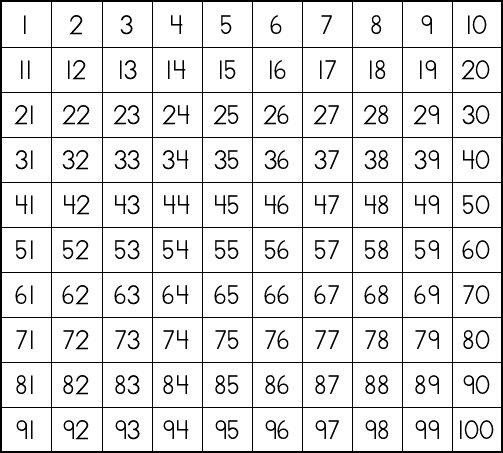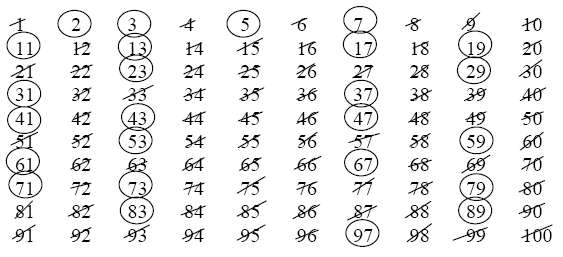
The smallest odd composite number is 9. Composite numbers can be divided by any other number including 1 and itself.
All Prime And Composite Numbers 1 100. The prime numbers up to 100: Prime numbers are the numbers which have only 2 factors i.e.
 Prime Numbers Chart 1 to 100 Helping With Math From helpingwithmath.com
Prime Numbers Chart 1 to 100 Helping With Math From helpingwithmath.com
The prime numbers between 2 and 100 are 2, 3, 5, 7, 11, 13, 17, 19, 23, 29, 31, 37, 41, 43, 47, 53, 59, 61, 67, 71, 73, 79, 83, 89 and 97. 2, 3, 5, 7, 11, 13, 17, 19, 23, 29, 31, 37, 41, 43, 47, 53, 59, 61, 67, 71, 73, 79, 83, 89, 97. A prime number is divisible only by the number 1 and the number itself.
Prime Numbers Chart 1 to 100 Helping With Math
Here we will list all the 25 prime numbers that are between 1 and 100. There are 74 numbers between the 1 to 100 composite numbers. List of prime numbers up to 100. The prime numbers between 2 and 100 are 2, 3, 5, 7, 11, 13, 17, 19, 23, 29, 31, 37, 41, 43, 47, 53, 59, 61, 67, 71, 73, 79, 83, 89 and 97.
 Source: lifeandwhatnot88.blogspot.com
Source: lifeandwhatnot88.blogspot.com
5 is a prime number. Step 3 divide the sum by 74. The resources below are similarly aligned. A composite number has factors in addition to one and itself. If you are searching for the list of prime numbers from 1 to 100 then you have come to the right place.
 Source: venturebeat.com
Source: venturebeat.com
For example, 2 = 1 × 2 prime 3 = 1 × 3 prime 6 = 1 × 6 and 2 3 composite 6 can be divided by 2 and by 3, so 6 is composite. For example, 7 is a prime number and 77 is a composite number as. Prime numbers can only be divided by 1 and itself..
 Source: enjoy-teaching.com
Source: enjoy-teaching.com
2, 3, 5, 7, 11, 13, 17, 19, 23, 29, 31,. As they have more than two factors. In other words any number which has more than 2 factors are composite numbers. 5 has exactly two natural number factors, 5 and 1. The prime numbers between 2 and 100 are 2, 3, 5, 7, 11, 13, 17, 19, 23, 29,.
 Source: helpingwithmath.com
Source: helpingwithmath.com
Therefore all numbers that end with five and are greater than five are composite numbers. The number 1 is neither prime nor composite.number 2 is the only prime even number.the prime numbers less than 50: Even composite numbers are all even numbers and are not prime. Composite numbers can be divided by any other number including 1 and itself. Prime.
 Source: onlinemathlearning.com
Source: onlinemathlearning.com
2.9k views · view 2 upvoters manish jonwal , studied at indian institute of technology, roorkee 9, 15, 21, 25, 27, etc, are examples of composite odd numbers. Except 1 each and every number is prime or composite. So, 100 is a �composite number�. Prime numbers can be written as the product of two numbers.





